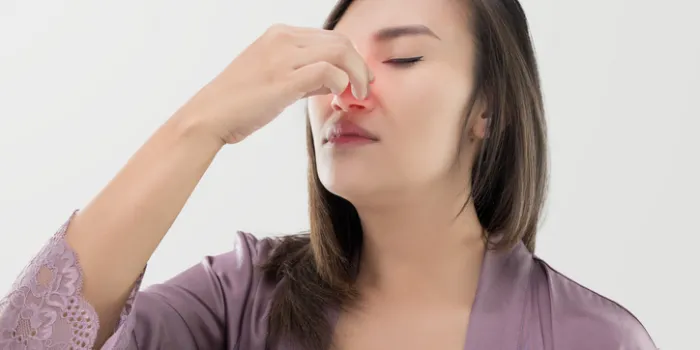All it takes is a soccer ball to the face, or maybe just a little dry air. Then, suddenly, you have a bloody nose.
Nosebleeds can be annoying and sometimes scary, especially if you have a bleeding disorder. But they’re seldom cause for alarm. With many tiny, delicate blood vessels, the nasal membranes are easily irritated. Allergies, certain medications and dry air can all aggravate those membranes and lead to nosebleeds.
Most of the time, nosebleeds don’t require emergency medical attention and can be treated at home. However, you should seek medical care if you have a prolonged nosebleed—one that lasts for several hours and that does not respond to pressure or other home remedies—or frequent smaller nosebleeds that stop easily but return for weeks, or if you vomit blood or have signs of anemia.
Here are a few tips on what to do if you have a nosebleed.
DO:
- Pinch the bridge of the nose and lean forward slightly, holding pressure for a minimum of 10 minutes. You can use nose clamps to apply pressure, but you shouldn’t leave a clamp on for more than 10 minutes.
- Time the nosebleed and record the information to share with your care provider.
- Talk to your medical care team about the best products for preventing nosebleeds. Options include saline sprays, creams or gels that prevent the breakdown of clots, and lubricating creams and ointments.
- Avoid secondhand smoke and other triggers, such as allergens, or hot, dry air. If dry air seems to be a trigger, you can counteract it by using a humidifier.
- Rest after a nosebleed to avoid a recurrence. You should avoid vigorous activities like sports, running, and other activities that cause your blood pressure to increase.
DON’T:
- Lie flat or recline during a nosebleed. Blood could run down your throat; swallowing blood can upset your stomach and cause vomiting.
- Pick or vigorously blow your nose. Both can irritate the delicate nasal passage. Blowing your nose during a nosebleed can make the bleeding worse or cause bleeding to restart after it’s stopped.
- Bend over for a long period of time.
- Eat warm and spicy food—which can cause blood vessels to dilate—on the day of a nosebleed.

